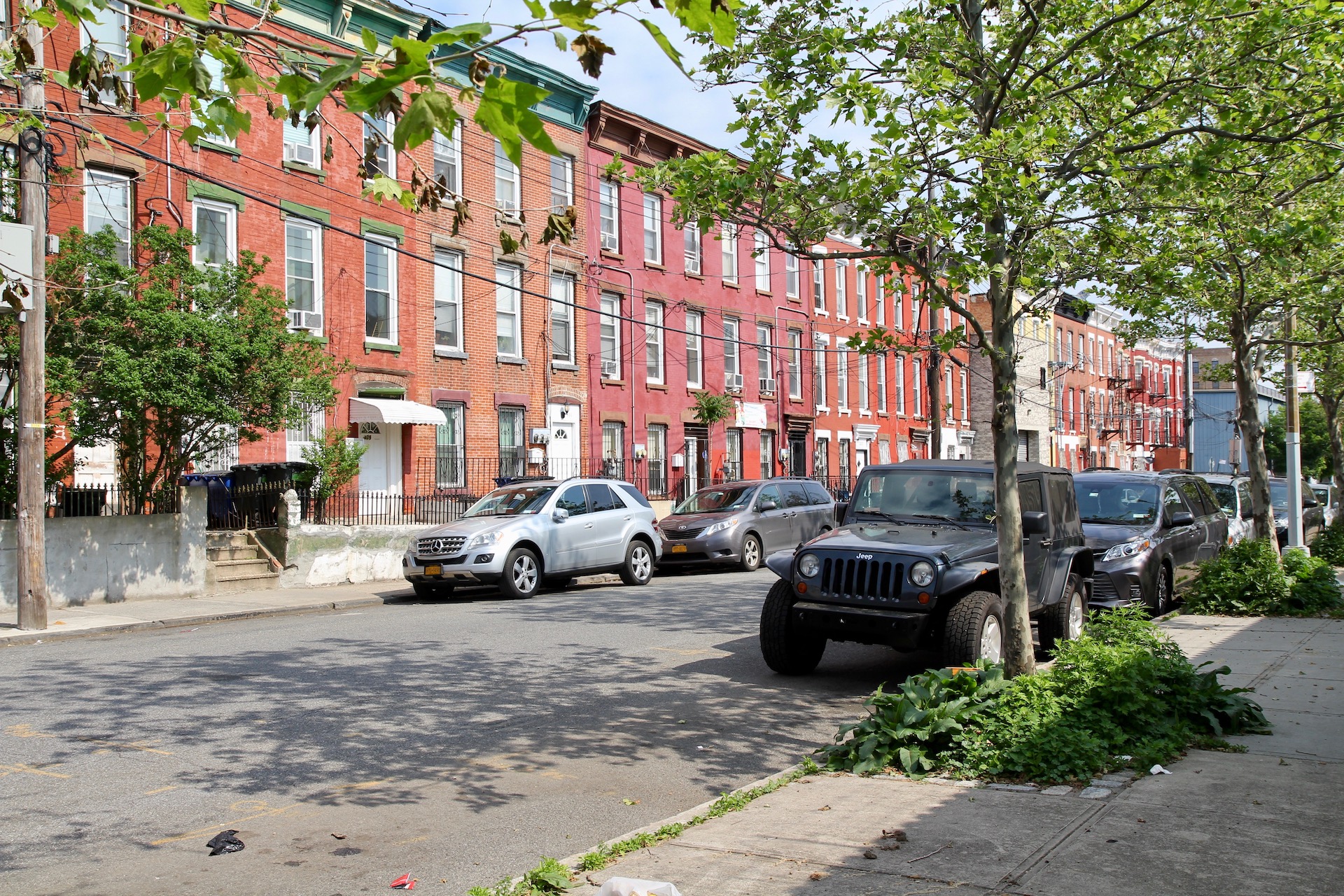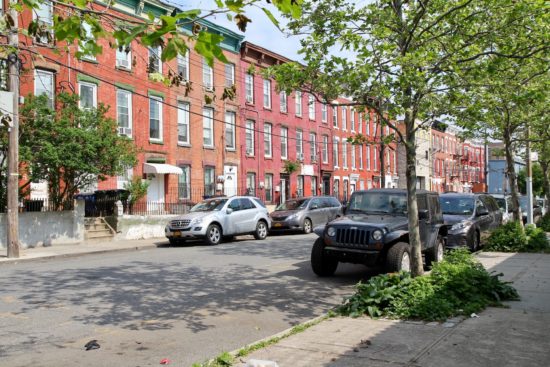
City and justice reform groups says a Mott Haven site is the only sensible choice, but some residents say it belongs on 161st Street; a coalition of abolitionists wants no new jails at all
At the core of the battle over building a new jail in Mott Haven lies the question of who should determine the fate of a neighborhood: the people who live there or the administration that governs the city.
The debate has attracted a diverse group of advocates, all of whom agree that Rikers Island should close. What they do not agree on is where to house as many as 1,125 prisoners from the Bronx.
Some criminal justice advocacy organizations, including Just Leadership USA and BronxConnect, have hailed the city’s plan to build a new jail at a city tow pound on Concord Avenue and East 141st Street and close the Vernon C. Bain jail barge in Hunts Point. They see that as a major step toward incarcerating fewer people.
But a coalition of abolition-minded New Yorkers formed during last fall’s hearings over the city plan and calling itself No New Jails, isn’t interested in reforming a broken system.
Along with other abolitionist groups like Critical Resistance, No New Jails has become a leading opposition voice in the Bronx, attracting local residents who see the fight against the borough site as part of a larger movement against incarceration nationwide. They are pushing for restorative justice practices and a radical rethinking of the city’s approach to pretrial detention.
The split echoes a four-year fight over the Bloomberg administration’s plan to build a new jail in Hunts Point that concluded in 2010 when the Department of Corrections withdrew its proposal.
Community Board 1 has voted against the jail plan, which is also opposed by Bronx Borough President Ruben Diaz, Jr., but the ultimate decision will be made by the City Planning Commission and the City Council, where Councilwoman Diana Ayala, who represents the jail site, favors City Hall’s plan.
Below, four South Bronx residents share how personal experience brought them to this fight, and why they see the jail plan as more than a dispute over land use. Their interviews have been edited for length and clarity.
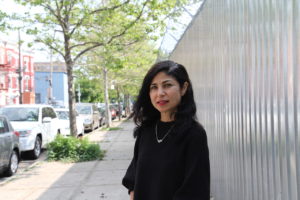
“There are more alternatives than just opening more jails.”
Myra Hernandez is an educator and Mott Haven homeowner
“On February 14, 2018, I woke up to the news that Mayor de Blasio was proposing a new jail just a few blocks away from my home. I was in shock, and so were my neighbors.
There are a lot of well-intentioned but misinformed people who say they don’t want a jail on their street and are pushing for it to be closer to the courthouse. I think some of them just aren’t aware that there are more alternatives than just opening more jails.
It’s appalling to think that all of this money would be put into something that’s going to hurt the community instead of the initiative that community members have spent generations fighting for. The community—my neighbors—are the ones who can speak to how that money would be better spent.
Most of our community is black and brown, and as we know, black and brown people are filling our jails across the United States.
It’s not just a jail on Concord Avenue, it’s all over the country.”

“When we put a jail there, what are we telling our children and grandchildren?”
Josephine Perez is a Mott Haven resident whose son spent three years on Rikers
“It’s not just the people on Rikers Island who are doing time—it’s their families, too. I know this because in 2005, my 16-year-old son was sent to Rikers.
For the next three years, I worked two jobs to hire a lawyer and to support him on Rikers Island, along with my seven other children at home. I couldn’t afford the $50,000 cash bail to set him free.
During the two and a half years my son spent on Rikers, we were both incarcerated.
When he was released in 2009 from the state prison where he finished his sentence, he was a shadow of his former self. This is how it works: Youths go into the system and they come out broken, feeling like they aren’t human anymore. And when they come out, their parents need to deal with their broken souls.
I’m opposed to the jail as a Mott Haven resident and as the parent of a child who was done wrong by this corrupt justice system. When we put a jail there, what are we telling our children and grandchildren—that this is your future? The money being put up for the jails should be reinvested toward new schools, housing, health care and the environment. Our future depends on that.”
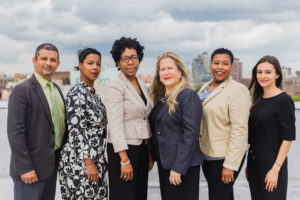
“We cannot leave a single person behind.”
Wendy Calderón-Payne is the Executive Director of BronxConnect a community-based alternative to incarceration program in Mott Haven that serves Bronx youth
“This isn’t a borough jail plan, this is a ‘Close Rikers’ plan. This is an issue of bringing our children home.
We founded BronxConnect in 1999 and from the beginning we have hired mentors from the community. We wanted people who came from the same life as the kids we serve. All of our staff have been affected by incarceration in some way; 90 percent are people of color, and 25 percent are formerly incarcerated themselves. We are this community.
There are many people we speak to in the neighborhood who are personally affected by incarceration. They want their family members close by, and they know the danger of missing this window of opportunity to close Rikers once and for all.
This is an opportunity to create a system that is redemptive, not punitive. We need to re-imagine criminal justice, even as we re-imagine rebuilding communities from within.
This is an opportunity to close the barge, a floating jail off the Hunts Point waterfront that is extremely difficult for people to access. The waterfront needs to be given back to the Hunts Point Community in the form of a community center.
Rikers has shed blood and Rikers needs to close. And community facilities are the only way to do that now.”

“We can ask for what we need without saying ‘yes’ to a jail.”
Longwood resident Lisa Ortega is a community activist and founding member of Take Back the Bronx, a grassroots organization that advocates for radical social change.
“One day, I was looking for one of those 12-step programs for drug treatment in a packet I got from my social worker. Instead, I found out about this group called Mothers on the Move. I called and asked the director what it was about, and she told me to come to one of their meetings. It was a room full packed full of women of color with kids, just like myself, and they were strategizing on how to remove this evil racist superintendent that was running District 8 schools. I was in awe. I immediately got that that natural high and my endorphins were going. I saw that when people with the same issues can get together, they can win.
In 2006, I was at a hearing with the organization I worked for at the time and I got wind that they were planning on building a jail in the Bronx. This was the first time I had heard it and it put panic in my veins. We decided to have a general meeting.
Tons of people showed up. Some of them were from nonprofits, others were just people off the streets. We started to call ourselves Community in Unity, because there were so many different groups that normally wouldn’t fight together on the same issue.
We knew enough not to use the Not-in-my-backyard vocabulary. Our catchphrase was “Not here, not nowhere” and there was no negotiating on that. We successfully stopped two proposals for new jails in Hunts Point: one on private property and another on city property.
Growing up, I saw the difference between the haves and the have-nots. And even though I was only there for a couple of months, I saw that the women on Rikers are just trying to survive. And I saw the real big boot that was put in place to stomp people like us out. But over time, I’ve found that when the have-nots come together, they’re actually pretty powerful.
I want people to know how much power they have. That they don’t have to compromise. We can ask for what we need without saying ‘yes’ to a jail.”
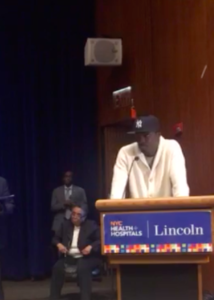
“We are all responsible.”
Harvey Murphy is an organizer with JustLeadershipUSA, who was born and raised in the Mott Haven Houses and has spent time locked up on Rikers. Below is part of his testimony presented at the May 30 Community Board 1 meeting at Lincoln Hospital, edited for length and clarity.
“I experienced things on Rikers Island that no one should ever see or experience. I was there with many people from this community. We came home traumatized.
The violence that is created by sending people off to a huge penal colony off in the East River, isolated from the rest of the city like we deserve to be thrown away–that violence comes back to the community because people are scarred. People are saying ‘’no new jails,’ but we don’t live in that world right now.
I can tell you about my friends –people from this community–who are on Rikers right now. About the abuse they are still suffering. About being served food from the trash, because the Corrections Officers forgot to call their house for dinner. About the pain of knowing their loved ones spent nearly a whole day to go through multiple layers of dehumanizing searches and security to visit them. About missing court dates, not being able to even speak to their lawyer, because who the hell has the time to get out to Rikers.
Now, I go to after-school centers and other places where young people gather in all the boroughs of the city. I talk to them about our struggle to close the jail and ask them what they would like to see in their community over the next few years. We talk about community centers in the neighborhood, places to do music or play sports or they want to learn a skill or they even just want to sit down and talk to someone.
But it’s not either or. We need both. We need to get every last one of our people off that island now. And we need the investments that will keep more and more young people out of jail, so that by the next generation this facility will empty out of people being detained and we can use it for something else. We can build that future together with the money we save by closing Rikers, but we cannot leave our people on Rikers any longer.”

